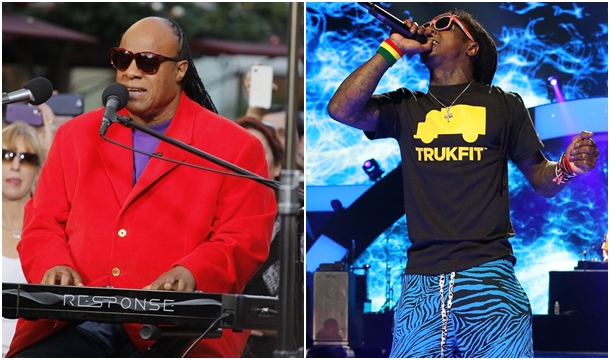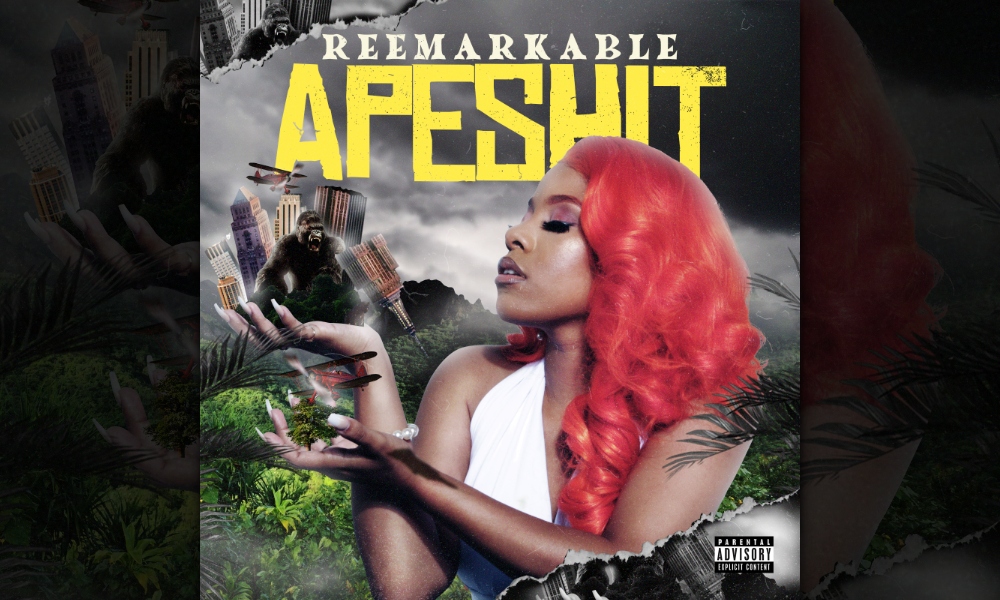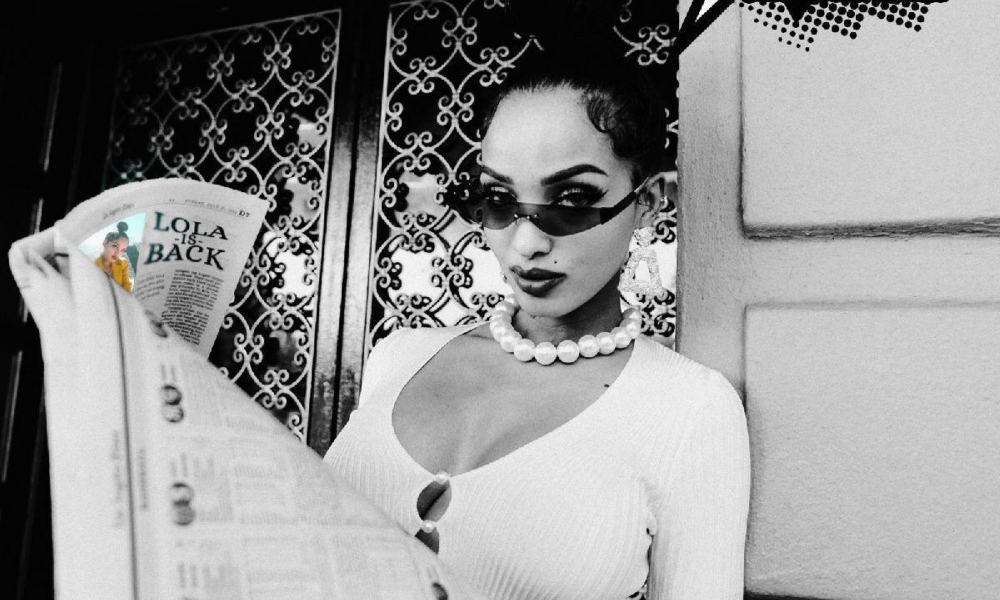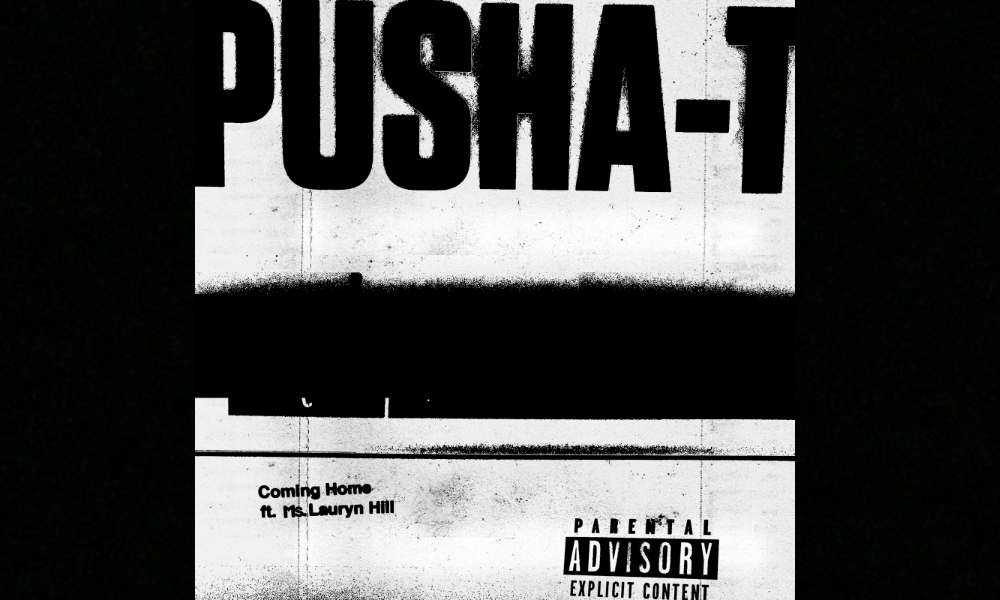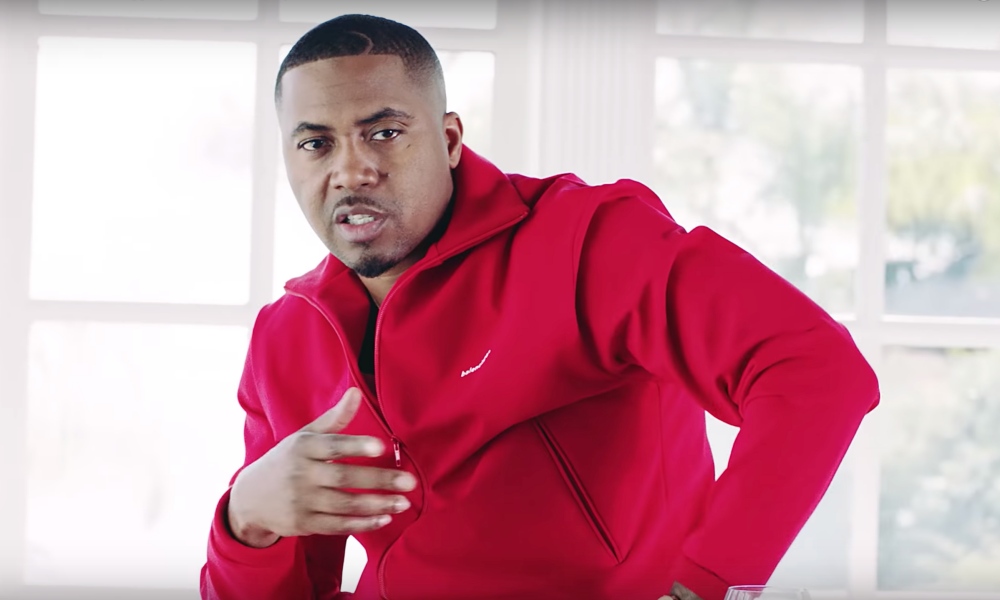Ironically transpiring during Black History Month, Lil Wayne’s comparison of a rough sex act to the vicious murder of Emmitt Till, a 14-year-old black teen in 1955 for whistling at a white woman on Future’s “Karate Chop” song caused a firestorm, one big enough for Epic Records to agree to take the song from the internet and re-release without the questionable lyrics. The exact lyrics begin with “Beat that pu**y up like Emmett Till,” and Wayne goes on to describe the amount of damage he wants to reenact in reference to the brutal crime.
Stevie Wonder took offense to the lyrics, and responded last Thursday. "You can't equate that to Emmett Till," Wonder said. "You just cannot do that. … I think you got to have someone around you that – even if they are the same age or older – is wiser to say, `Yo, that's not happening. Don't do that.'"
Words are powerful, and Wonder wants songwriters to take responsibility for the words they choose. "Sometimes people have to put themselves in the place of people who they are talking about," Wonder said. "Imagine if that happened to your mother, brother, daughter or your son. How would you feel? Have some discernment before we say certain things. That goes for me or any other (song)writer."
Rev. Jesse Jackson reached out to Wayne’s management on behalf of Till’s family to, while Epic agreed to pull the track. In a statement, the Epic states that version of “Karate Chop” was an unauthorized online leak, and they plan on scouring the net to have it pulled. “Out of respect for the legacy of Emmett Till and his family and the support of the Reverend Jesse L. Jackson, Sr. … we are going through great efforts to take down the unauthorized version,” the statement says.
The label assures that an authorized version will be released at a later date without the controversial lyrics.
It’s no secret that Lil Wayne is one of the most influential rappers in the world today. But when he released a lyric about Emmett Till, it sparked an outcry from many – including Stevie Wonder. In this article we’ll explore why Stevie Wonder has taken such a strong stance against Lil Wayne’s lyrics and what impact his words have had on society.
The case of Emmett Till, which happened over 60 years ago, still resonates powerfully with people around the globe today- especially African Americans. The 14 year old black boy was brutally murdered by two white men after allegedly whistling at a white woman in Money Mississippi in 1955. His death served as a catalyst for the civil rights movement and remains an incredibly traumatic event for African American communities to this day.
So it came as quite a shock to many when rap superstar Lil Wayne referenced this tragedy during one of his songs – and even more so when music legend Stevie Wonder responded immediately with “you just cannot do that”. We will be exploring why Stevie took such exception to these lyrics, how they affected public opinion, and if there was any resolution reached between the two artists.
Analysis Of Emmett Till Lyric
The controversial Emmett Till lyric by Lil Wayne has sparked an outcry of criticism from the public. The line, “beat that p*ssy up like Emmett Till” is highly offensive and disrespectful to the memory of a young man who was tragically killed in 1955 for simply whistling at a white woman. Many have pointed out its explicit misogyny, as well as how it trivializes the horrific events surrounding his death. One noteworthy critic of this lyric is legendary singer-songwriter Stevie Wonder, who recently said: “you just cannot do that” when referring to the distasteful reference made by Lil Wayne.
It’s understandable why many people found this lyric so offensive – not only does it make light of a tragic event but it also perpetuates negative gender stereotypes about women and their role in society. To put it bluntly, there is no place in popular music for lyrics that demean or degrade any group of people based on race or gender. Moreover, referencing such an historic event highlights the power dynamics still present within our culture today and reinforces certain oppressive ideologies.
In addition to being morally wrong, using a tragedy such as what happened to Emmett Till can be seen as unoriginal and lazy songwriting. It implies that violence against women should be accepted without consequence and sends a dangerous message to young men and boys about how they should interact with girls and women in general. Such behavior must be discouraged rather than glamorized through art if we want to create real change in our society.
Stevie Wonder’s Response
The widespread criticism of the lyric has been heard loud and clear, particularly from one iconic artist. Stevie Wonder, a musical legend who himself experienced racism during his career in music industry, expressed his thoughts on Lil Wayne’s line by saying “you just cannot do that”. His response speaks volumes about the deep disrespect he felt towards this particular lyric and serves as an example for other artists to follow when creating their own art.
It is important to note that even though many people were appalled by Lil Wayne’s choice of words, it was not only him at fault here – rather it was a system of oppression within our society which allowed such lyrics to be released in the first place. The reality is that there are still numerous power dynamics embedded into our culture which make something like this more likely to happen than not. As we continue to move forward as a society, it becomes increasingly necessary for those with influence in the entertainment industry to speak out against any form of glorified violence or discrimination against marginalized groups.
Stevie Wonder has taken up this call-to-action and set a very positive precedent for future generations to come. He recognizes how powerful art can be and continues to use his voice to advocate for social justice issues whenever possible. We must all strive towards making sure these types of incidents never occur again if we want true progress.
Conclusion
In conclusion, it is clear that Stevie Wonder has taken a strong stance against Lil Wayne’s lyric about Emmett Till. He believes the tragedy of Emmett Till should not be trivialized or used as an example for comparison in popular music and culture. His response was firm yet respectful, emphasizing that we must use our words carefully when discussing topics like racism and injustice. We can all learn from his decision to take a stand on this issue, especially now more than ever with so many people using their voices to speak out against discrimination and prejudice. My hope is that other artists will follow suit by recognizing the power of their lyrics and choosing to use them wisely. It is only then that we will truly create meaningful change in society.
